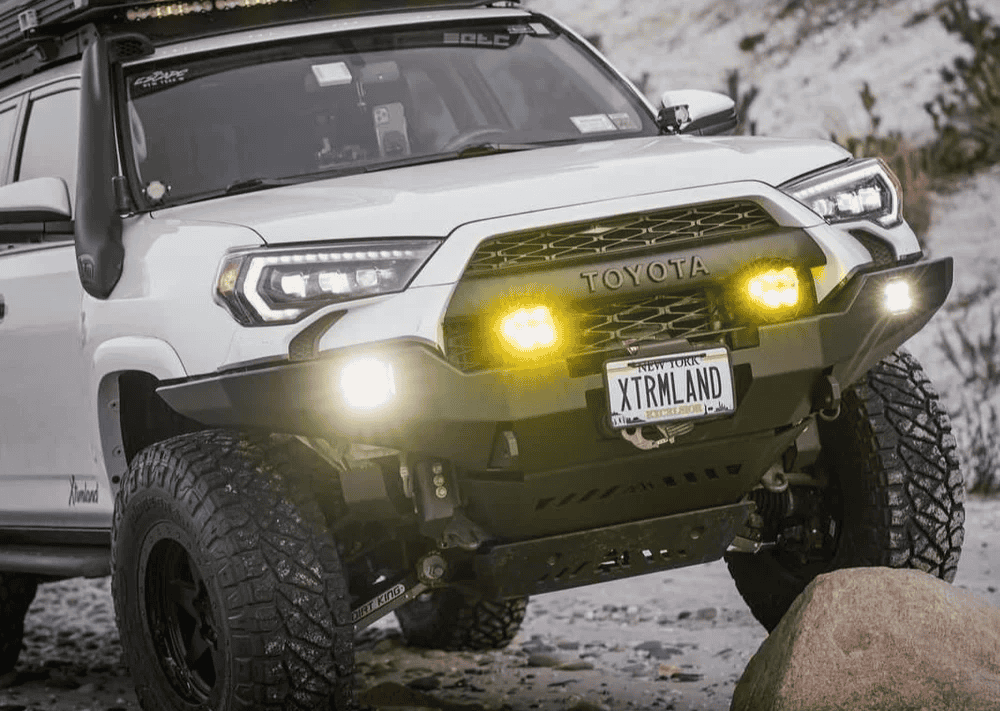Overland Vehicles

A useful rooftop tent review looks past glamour shots and zeroes in on structure, materials, and real world comfort. Start with the shell or canopy fabric grade, the density of the mattress, and the stiffness of the base. Note hardware quality, hinge types, and the way the ladder loads the frame. Record setup time from parked to zipped windows, then the reverse. Evaluate wind noise at highway speed and how the tent affects handling.
Weather protection is a make or break dimension. Look for seam taping, storm flap coverage, and the integrity of zippers under tension. Mesh density matters for bug pressure, while vent placement controls condensation on cold nights. A strong review measures performance in soaking rain, sharp crosswinds, and frosty mornings when breath can saturate the canopy.
Comfort lives in the details. Does the mattress keep hips from bottoming out. Can you sit upright without brushing the ceiling. Do glasses, lights, and phones have places to live. An honest review includes these small checks because they determine whether camp feels restful after a long day.
Open and close the tent repeatedly to expose weak points in struts, straps, and latches. Inspect fabric for abrasion at contact zones and watch for water pooling on flat panels. A tent that shrugs off grit, wet, and daily cycles earns trust on extended trips.
Measure interior height, legroom, and headroom in multiple sleep positions. Test window and door geometry for ventilation and views. A good rooftop tent review also notes blackout quality for early sunrises and neighboring campsite lights.
Check static and dynamic ratings for your rack system and crossbars. Confirm mounting channel compatibility and the hardware footprint. Weight distribution on the roof should keep heavy components centered and low to limit body roll and brake dive.
Hard shell tents trade fabric flapping for rigid protection and often faster deployment. Wedge designs open on a single axis and create tall headroom at one end, great for reading or changing. Clamshell or box types can offer rails for extra gear, with better aerodynamics and less noise than many fabric canopies. Soft shell fold outs usually deliver expansive floor space and annex flexibility at a lower price, though they pack larger and can take longer to dry after rain.
When comparing options, assess:
Annex rooms, awnings, and gear lofts add utility. Consider how often you will use them and how they affect pack down time. Season ratings matter too. If you chase powder days, seek stouter poles, tighter seals, and fabric that does not sag under light snow. For muggy summers, prioritize mesh and high low vent paths.
A dependable rooftop tent review blends lab style checks with trail time. Park on uneven ground and verify the ladder still loads securely. Simulate a rushed setup in wind, then pack it during a drizzle to see how water management works. Track fuel economy changes after installation and listen for new roof noises that arrive with crosswinds.
Comparative notes help translate specs to real use. Many shoppers search inspire roof top tent or read an inspired overland rtt review to frame their research. Use these as benchmarks for categories like setup speed, shell rigidity, fabric durability, and value, then apply the same lens across other options. What matters is consistency in testing and clarity about tradeoffs for your travel style.
If your rooftop tent will ride on a daily driver, emphasize weight, ladder ergonomics, and aerodynamics. Long highway hauls reward sleeker shells and clean mounts, while backcountry routes demand stronger hinges and better dust sealing. Families may prefer larger soft shell footprints for shared sleep, whereas solo travelers might pick a compact wedge for quick camp moves.
A great tent still needs the right foundation. Confirm rack capacity, crossbar spacing, and roof ratings before purchase. Then plan lighting, recovery gear, and a simple power system so camp routines stay smooth in all weather.
When you are ready to fit a tent to a capable platform, our team can help connect your research to a reliable rig. See how we design platforms that carry real weight with quiet mounts and clean wiring, then refine the whole package for trips that run smoothly.
Ready to move from spec sheets to the open road. At OZK Customs in Fayetteville Arkansas, we build overland rigs that balance comfort, storage, and real world durability. Tell us where you travel, how you camp, and what gear you carry. We will map the right tent, rack, suspension, and power so your setup works the first time and every time.
Ready to turn research into a dialed build. Tell us how you travel and we will spec the right tent, rack, and accessories, then integrate power, lighting, and storage. Share your trip goals and get an OZK plan that fits your route and budget.
ADDRESS:
6159 E Huntsville Rd, Fayetteville, AR 72701
PHONE:
(479) 326-9200
EMAIL:
info@ozkvans.com